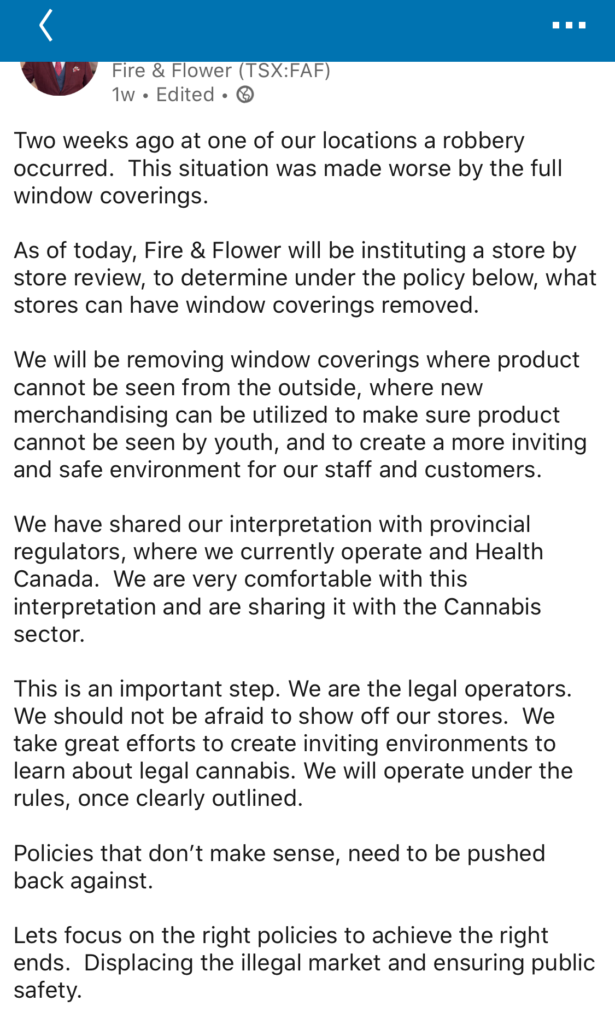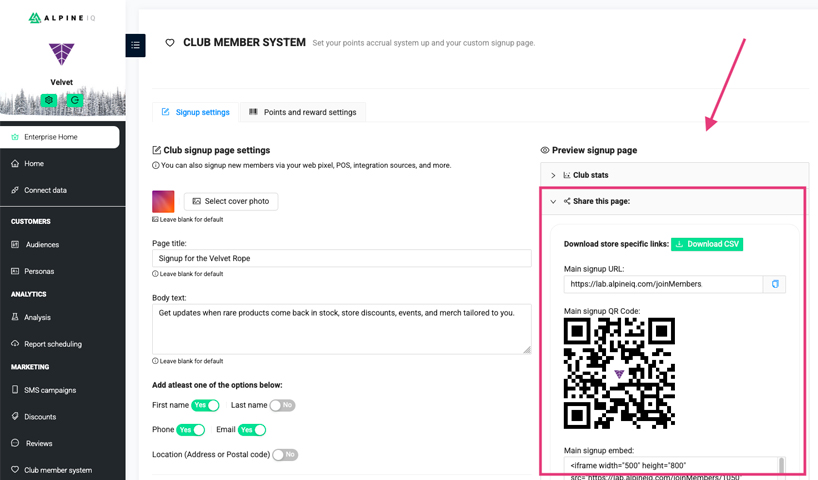One of the most challenging things to navigate in the cannabis world is compliance. Regulation is open to interpretation and back and forth with local government contacts can dominate your time.
To give you context around what I’m talking about let’s talk about Canada, a place where federal law SHOULD make things less complex. Just last week we visited clients and new prospect retailers in British Columbia, specifically in Vancouver and Victoria (Vancouver Island). They all technically have the same province and federal level restrictions. You would think that these retailers share the same interpretations of the law and hesitations to violate them, however, this is not the case.
In British Columbia province-level regulation (Updated: February 2020) mentions:
“Loyalty programs of any kind are not permitted.”
AND:
“Cannot operate a patron loyalty program, whether or not it is in association with another business”

The Original Farm (Victoria) is notorious for dominating the market on Vancouver Island and is known for being extremely strict about cannabis compliance regulation. When they shifted to their new name upon the federal legalization “reset”, they were hemorrhaging cash to keep up with grey market stores who were illegally selling non-flower goods. They stayed the course and earned the trust of the local regulators by following every letter of the book. Their views on Loyalty programs hold firm and we are working together in hopes of altering future BC rules.
However, we met with a few large retailers who believe offering discounts to customers on a “mailing list”, who don’t accrue points or have an indication that buying from the store triggers rewards, gives them a green light to pass BC law. This is one interpretation we see being leveraged in the market today that has yet to be flagged by local regulators.
Another interesting example surrounds rules related to window coverings. In Canada, you are required to have window coverings so that young adults cannot see into your store. This lowers a brand’s appeal and makes buying cannabis feel dark, uninviting, and ominous to some. Fire & Flower recently had a robbery at one of their locations where window coverings compounded the problem. Imagine walking into a store not realizing it’s currently being robbed! This is a huge issue for everyone involved and was not taken lightly.

In this instance, Fire & Flower worked extremely quickly to interpret the law, modify their brick and mortar stores, and deliver a SAFER environment for their consumers/ employees while still protecting outsiders from viewing product. This is a fantastic example of working to make the legal market safer while respecting the overall vision local regulation was meant to protect.
Have your own stories? Add them to the comments below.






Leave a Comment